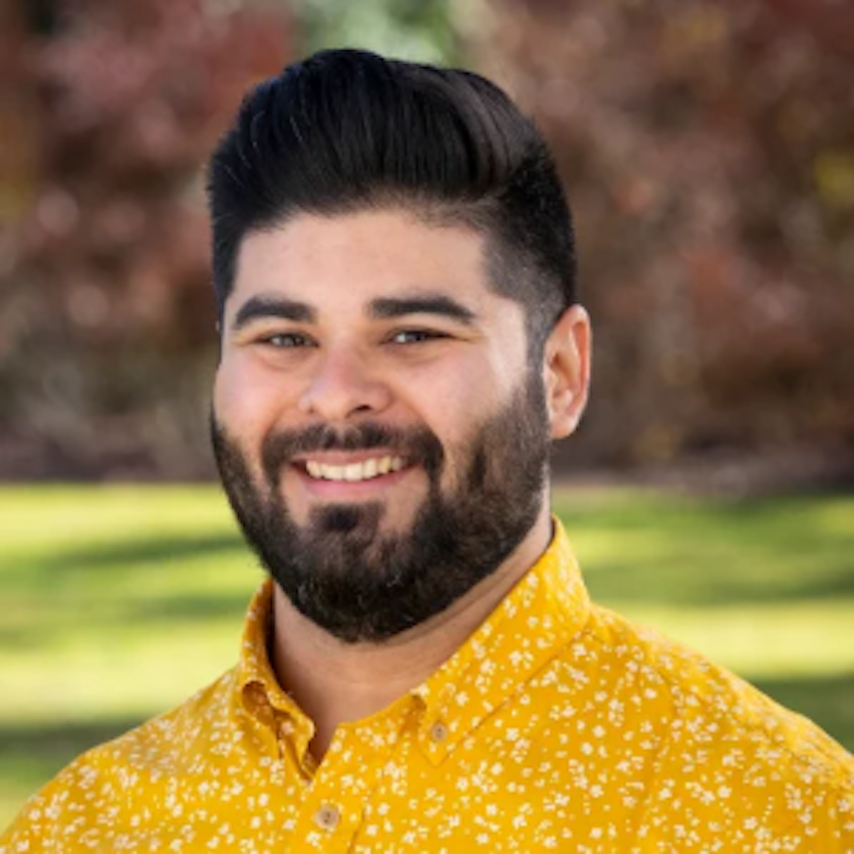Steven Arciniega


A translator listens as much as they speak. A poet pauses at the edge of grief. A schoolgirl hides her Barbie during an air raid. These are not just images from wartime, these are acts of attention, care, and meaning-making in a fractured world. And they are at the heart of “Both Sides Face East. Volume 1: Durable Words,” a new multilingual collection co-edited by University of Redlands Creative Writing Professor Alisa Slaughter.
Born out of the aftermath of Russia’s 2022 invasion of Ukraine, the anthology brings together writers from Ukraine, the former Yugoslavia, Poland, Hungary, Armenia, and beyond. But while the book began as a response to war, Slaughter explains, “it stakes a wider claim on behalf of human value and integrity.” Through poems, essays, and translations across nine languages, the work explores fragility and resilience, connection and exile, language and loss.
Slaughter’s own path into this work is grounded in long-standing engagement with Central and Eastern Europe. She’s co-translated Russian and Ukrainian poetry, and for years led Redlands students on May Term study-travel courses to the region, some even student-taught by Johnston Center seniors.
“It would have been nice to continue to focus on the beautiful and inspiring art and literature of Eastern Europe and take my time to understand its complicated and sometimes ugly history, but Russia’s aggression has made a more activist engagement politically and ethically urgent,” she said. “Immediately after the invasion, one of the co-editors and I participated in a couple of emergency translation projects that were published in ‘The Paris Review’ and ‘Persuasion,’ and we gradually developed this project as the war continued.”
That urgency became action. Alongside co-editors Julia Sushytska, a Ukrainian-American scholar at Occidental College, and ariel rosé, a Polish poet and essayist, Slaughter helped coordinate a deeply collaborative effort involving international translators, Redlands emeriti, and even fellow contributors from Lviv, Taiwan, and Bulgaria. She translated or co-translated many of the English versions herself, often working across cultural and linguistic gaps.
“The book emerges from conversation with writers and is about care, attention, and justice in an indirect way,” she said. “Redlands students are interested in justice, and in high school, they don’t learn much about that part of the world except through slogans or very brief items they may see on their social media feeds. We three editors are interested in supporting Ukraine and Ukrainian writers and artists—we’re interested in translation as an act of care and justice, and we’re committed to justice as a product of conversation, not something you can put on a billboard or a social media post or dispose of by gesturing toward ‘both sides.’”
The project continues to grow. Volume 2, titled ‘Borders de Todos Lados (Borders from All Directions),’ is already underway and will expand the conversation to include voices from the U.S.–Mexico border, Israel/Palestine, India, and Taiwan. Adding to this volume will be co-editor Christian Alonso Fernandez Huerta, Cultural Studies faculty at the Universidad Autónoma de Baja California (UABC), underscoring the long-standing collaboration between Redlands and UABC. Volume 3 of the work will focus on “Translation as Dialogue,” and Slaughter plans to bring one of its contributors to campus this fall for a student-centered event on translating Iranian and Armenian poets.
For Slaughter, the goal is to provide students with tools—not just for reading or writing, but for living in a complex, global society, hoping to offer “a useful perspective on what can seem like a big and confusing world.”
